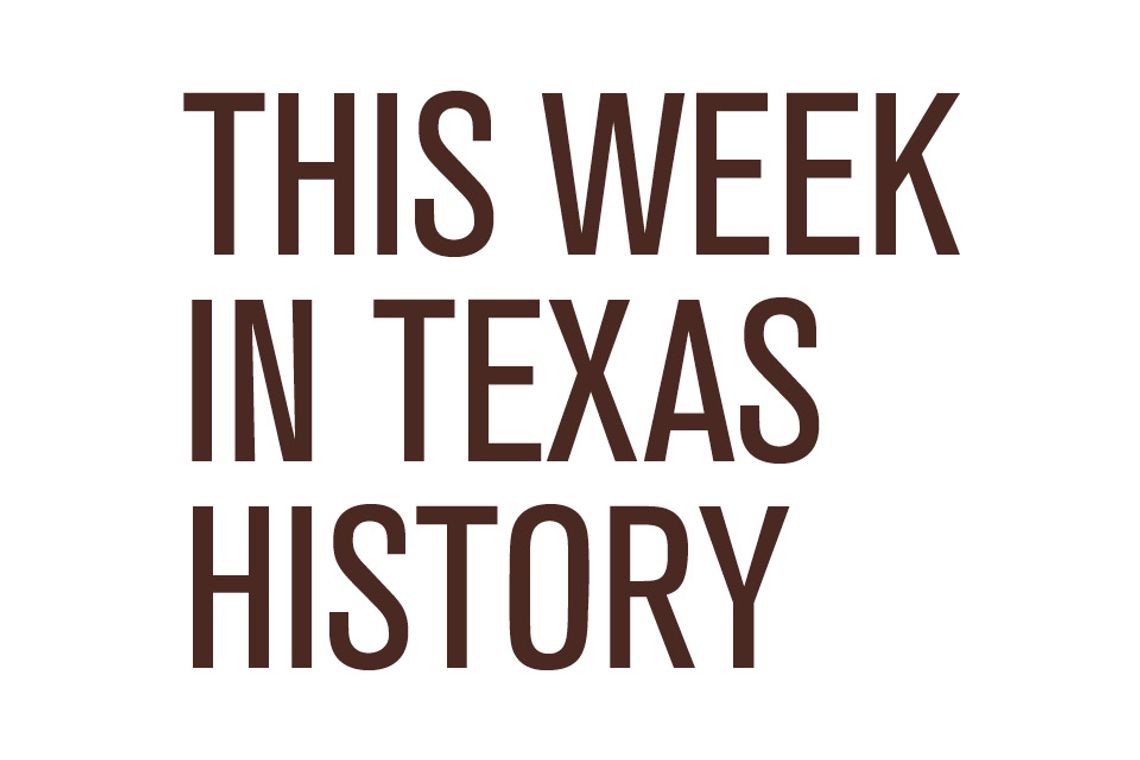By Bartee Haile
Woodward Maurice Ritter was born on Jan. 11, 1905 deep in the piney woods of East Texas at a wide spot in the road called Murvaul.
Besides the finest voice in the musically gifted family, Woodward also had the best mind. Graduating at the head of his high school class in Beaumont, he obliged his parents by taking pre-law courses at the University of Texas.
But cowboy ballads not jurisprudence fascinated the talented baritone. Extended exposure to J. Frank Dobie, the Lone Star historian, folk music scholar John A. Lomax and composer Oscar J. Fox, all members of the UT faculty, convinced the undergraduate he was not cut out for the courtroom.
Ritter finally scratched his show-biz itch in 1928 and dropped out of college to join the male chorus of a traveling troupe. Winding up in New York that November with ten cents in his pocket, the Texan’s Thanksgiving dinner was a plateful of greasy French fries.
The struggling singer’s big break came two years later with a role in the Broadway production of “Green Grow the Lilacs.” Going by the northern nickname of Tex, he soon was swamped with radio and record offers.
For five hectic years, Ritter was a celebrity on the Manhattan airwaves. His three radio shows -- “Tex Ritter’s Campfire,” “WHN Barn Dance” and “Cowboy Tom’s Roundup” -- consistently chalked up sky-high ratings.
Ritter enjoyed similar success in his 1933 debut as a recording artist. Both sides of his premier single, “Rye Whiskey” and the sentimental “Good-Bye, Old Paint,” were huge hits.
Hollywood beckoned in 1936, when Grand National Pictures picked Ritter as the answer to Gene Autry at rival Republic. Astride his mount White Flash, Tex rode off into a dozen sunsets in less than two years before the shoestring studio closed its doors.
Ritter landed on his feet at Monogram Pictures, where he cranked out 20 lyrical westerns. Since the formula was more important than the plot, he frequently finished a whole day’s shooting without ever glancing at the script.
On the strength of his box-office appeal as one of the silver screen’s top ten attractions, Ritter jumped to Columbia. This supposedly smart career move to a major studio turned out to be a serious mistake, since he wound up playing second fiddle to Bill Elliot.
Ritter swallowed his disappointment and honored the nine-feature commitment with Columbia. Free at last to resume his search for greener cinematic pastures, he temporarily hung his hat at Universal only to be overshadowed by the resident sagebrush star Johnny Mack Brown.
Ritter’s fifth stop on his decade-long tour of Hollywood was PRC Pictures, where he appeared in the memorable “Texas Rangers” series. The end of the Second World War coincided with the release of his eighty-fifth and final film.
Even though the movies failed to live up to his high expectations, the low-budget features had earned him a large and loyal following. Zealous fans in every corner of the country loved his distinctive vocals and waited in long lines to hear him perform in person.
Ritter was composer Dimitri Tiomkin’s first choice to record his title tune for a new western co-starring Gary Cooper and Grace Kelly. Both the motion picture and the song were fabulous favorites, and Tex sang “High Noon” at the 1953 Academy Awards ceremony.
By 1960 Ritter was spending most of his time in Nashville, the emerging capital of country music. He served two consecutive terms as president of the Country Music Association and in 1964 was elected to the Country Music Hall of Fame, the first artist so honored in his lifetime.
During the turmoil of the late 1960’s, Ritter took a political detour to the far right. Egged on by misguided friends and ultra-conservative partisans, the wealthy novice sought the Republican nomination for a Tennessee seat in the U.S. Senate. He spent a fortune on the expensive campaign but attracted barely a fifth of the primary vote.
Ten days before his sixty-ninth birthday in 1974, Ritter received a late-night phone call from the Nashville police station. A musician in his band had been arrested on child-support charges and lacked the cash to make bail.
Never one to reject a friend in need, the country music legend dressed and drove down to the city jail. As the bond papers were being drawn up, he suddenly clutched his chest and collapsed on the floor.
Tex Ritter was dead, the victim of a massive coronary. The heart as big as his native Texas simply gave out.
And, oh yes. John Ritter, the popular television star who died in 2003 in the prime of life, was Tex’s son.
Read all about the early years of the oil frenzy in “Texas Boomtowns: A History of Blood and Oil” Order your copy for $24.00 by mailing a check to Bartee Haile, P.O. Box 130011, Spring, TX 77393.












